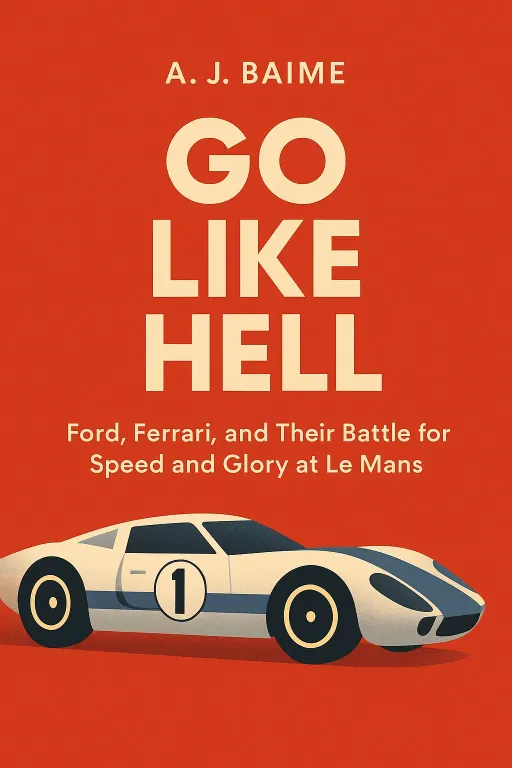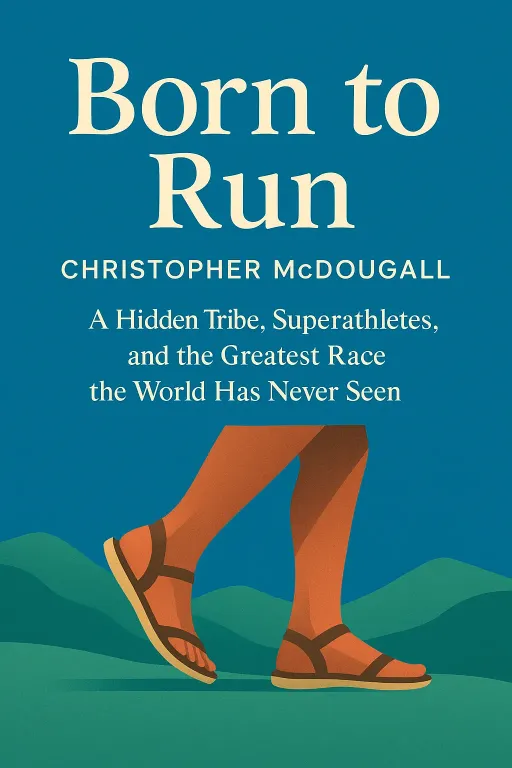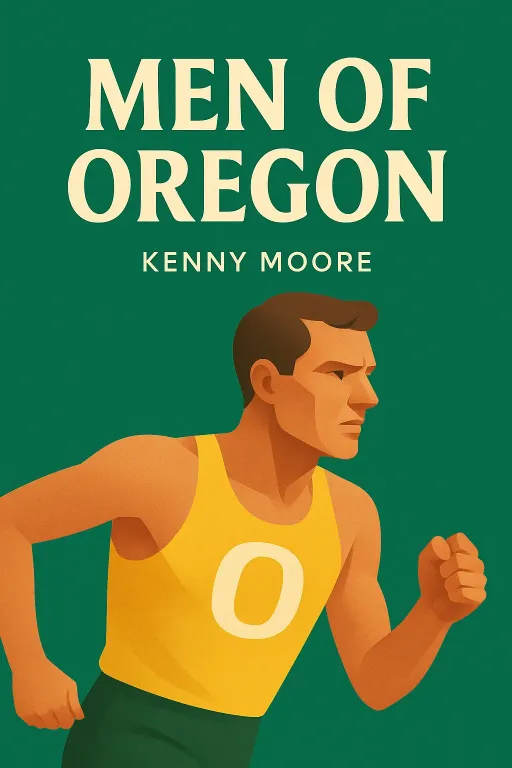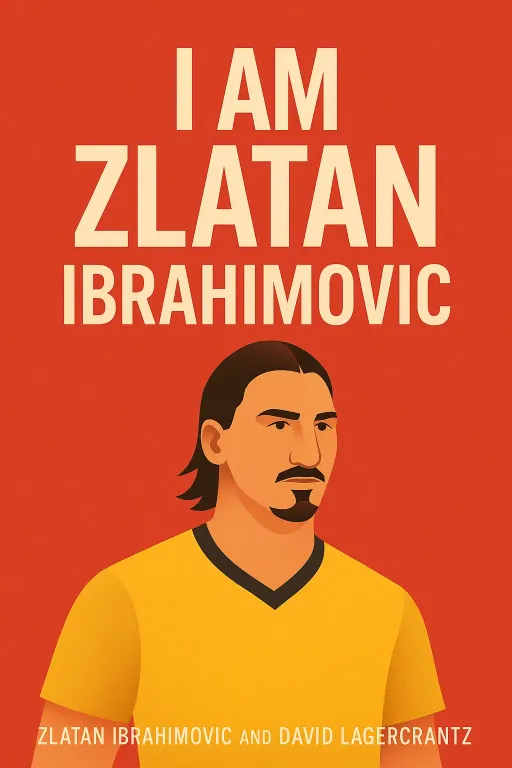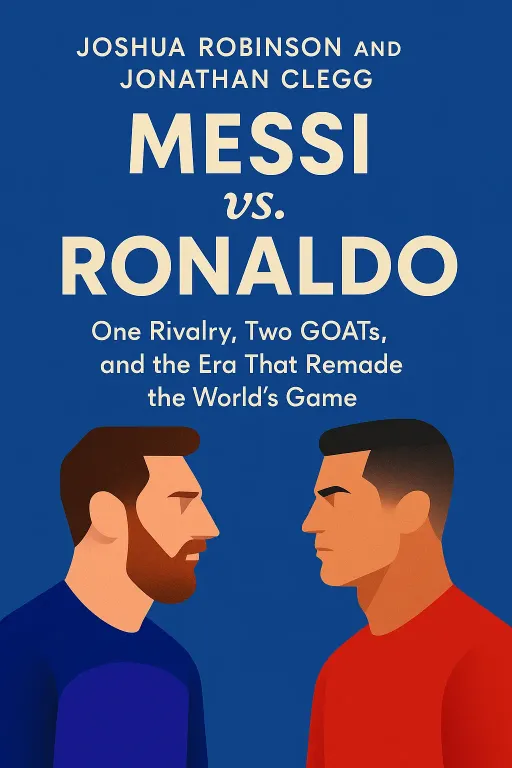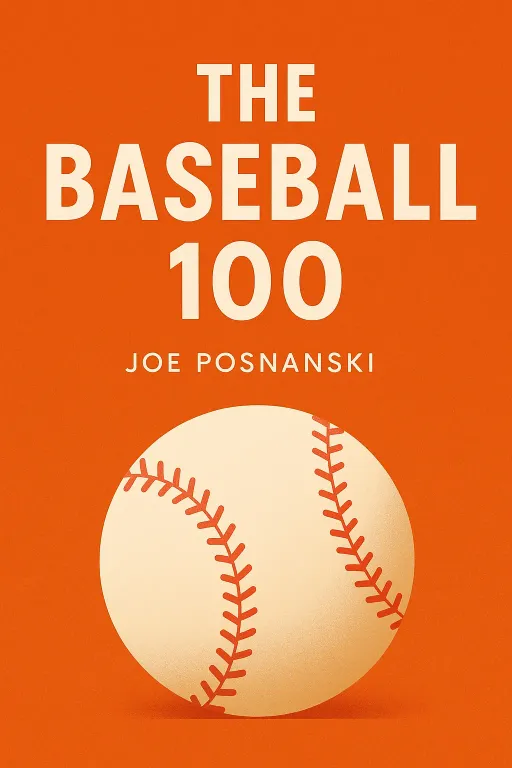
The Measure of a Legend
11 minGolden Hook & Introduction
SECTION
Michael: Alright, Kevin, I'm putting you on the spot. You have to name the single greatest baseball player of all time. Go. Kevin: Oh, easy. It's the hot dog vendor from Section 112 at Yankee Stadium. Unbeatable consistency, beloved by the fans. What more do you want? Michael: (Laughs) You know, that's not the worst answer I've ever heard. In fact, that's basically the spirit of the book we're talking about today, 'The Baseball 100' by Joe Posnanski. Kevin: A book that I assume does not rank the hot dog vendor, which is its first mistake. Michael: A glaring omission, I agree. But it's a phenomenal book. And this isn't just some fan's list. Posnanski is one of the most decorated sportswriters in America, and this 880-page book is considered his magnum opus. It even won the CASEY Award for the best baseball book of the year. Kevin: Eight hundred and eighty pages? That's longer than Moby-Dick. Is he hunting a white whale or just a well-hit baseball? Michael: Both, in a way. He’s hunting for the definition of greatness. But the most charming part of the whole book, for me, is that it starts not with a statistic, but with his mom.
The Argument is the Point
SECTION
Kevin: His mom? Okay, now I'm interested. How does a book about the 100 greatest athletes start with someone's mother? Michael: Because she perfectly illustrates the book's entire point. The story goes back to 1976. Posnanski is nine years old and obsessed with collecting baseball cards. His mother, Frances, knows absolutely nothing about baseball. Zero. But she wants to connect with her son, so she dives in headfirst. Kevin: That's sweet. So she starts learning the players? Michael: Not exactly. She approaches it like an accountant, which she was. She gets this giant ledger and starts organizing the cards. Not by team, not by skill, but by the number on the card. Then alphabetically. Then by position. She's creating this elaborate, beautiful system that has nothing to do with the game itself. Kevin: I love that. It's a completely different way of looking at the same information. Michael: Precisely. And it leads to these incredible moments. They get to the card for a player named Joe Lahoud, and under his name it says "Des. Hitter." His mom stops and asks, in her thick accent, "What is a Des. Hitter?" Kevin: Oh no. Michael: He explains it’s a "Designated Hitter," a player who only bats and doesn't play in the field. And she thinks for a moment and just says, "Well, that's stupid." Kevin: (Laughs) She accidentally stumbled into one of the most bitter, long-running arguments in all of sports! Traditionalists have been screaming that for fifty years. Michael: Exactly! Without knowing a thing, she landed right on a core philosophical debate. And it gets better. Years later, Posnanski becomes a sportswriter. He writes his first game story, and in it, he mentions a run was "unearned" because of a defensive error. His mom reads it, tells him it's a lovely story, and then asks, "Who are you... to decide whether a run was earned or unearned?" Kevin: Wow. That's... surprisingly profound. She's questioning his authority, the very idea that a journalist or a scorer gets to make these subjective judgments. Michael: That's the whole thesis of the book in a nutshell! Who are we to definitively say who is #17 and who is #18? The book isn't about finding the "right" answer. It's about the joy of the argument. It's about the stories. He even tells this amazing anecdote where he gets a phone call at dinner from a Milwaukee area code. His wife tells him to pick it up. It's Bud Selig, the former commissioner of baseball, a Hall of Famer, calling him to complain about where he ranked certain players. Kevin: Wait, the former commissioner of baseball called him at home to argue about a list? That's incredible. It proves the point. The debate is the real national pastime, not the game itself. Michael: That's what Posnanski is saying. The numbers are a starting point, but the stories, the arguments, the human element—that's where the magic is. And that philosophy dictates his entire ranking system. Kevin: I read that some readers found his rankings a bit whimsical, like he sometimes ranked players to match their jersey number. Does that kind of thing undermine the seriousness of an 880-page project? Michael: I can see why some people might think that, but I think it reinforces his point. He's winking at the reader, saying, "See? It's all a bit subjective, isn't it? Let's not pretend this is pure science." He's prioritizing the narrative, the poetry of the game, over a false sense of mathematical certainty. And that approach leads to some fascinating inclusions and placements.
The Mensch and the Missed
SECTION
Michael: And this idea that greatness isn't just about stats, but about story and character, is how he ranks the players. Which brings us to player #99, a guy who perfectly embodies this: Mike Mussina, the 'mensch'. Kevin: The 'mensch'? What does that mean? I'm guessing it's not a baseball statistic. Michael: Not at all. It's a Yiddish word, and Posnanski, who grew up in a Jewish family, explains it beautifully. It's hard to translate directly, but it means a person of integrity and honor. Someone with character, dignity, who just tries to do the right thing, even when no one's watching. Kevin: Okay, but hold on. That's a nice story, but this is a list of the greatest players. Being a 'good guy' doesn't win you games. How was he actually great on the field? Michael: That's the perfect question, because his greatness was quiet. Mussina was a brilliant pitcher for the Orioles and Yankees. Statistically, he was elite. He had multiple seasons where, by advanced metrics, he was arguably the best pitcher in the league. But he never won the big award, the Cy Young. In 2001, he had a better season than his teammate Roger Clemens in almost every significant way, but Clemens won the award and Mussina finished fifth. He had multiple near-perfect games broken up in the final inning. He was consistently excellent, but never flashy. Kevin: So he was the brilliant, quiet employee who does all the work while the charismatic guy in the corner office gets the promotion. Michael: Exactly. And his 'mensch-ness' played into that. When he was a high school phenom, his dad, a lawyer, told all the pro teams not to draft him because Mike was committed to getting his degree from Stanford. He went to Stanford, got a degree in economics in three and a half years, and then went pro. Kevin: That's unheard of. Most kids with that talent would jump at the money. Michael: And the story ends just as perfectly. For his entire long, successful career, he never once won 20 games in a season, which is a benchmark for elite pitchers. In his very last year, at age 39, he finally does it. He wins 20 games. And what does he do? He retires. On top. He said he knew he was done. A mensch knows when to say goodbye. He didn't hang on for another paycheck. Kevin: That's a powerful kind of greatness. It's a greatness of character, not just performance. It's subtle. Michael: It's incredibly subtle. And then, right next to him on the list, at #98, is a player who is the complete opposite. A guy whose greatness was so obvious, so loud, that people somehow missed it. Carlos Beltrán. Kevin: How can greatness be loud and missed at the same time? That sounds like a contradiction. Michael: Because Beltrán made everything look too easy. He was a five-tool player: he could hit for power, hit for average, run, field, and throw. He was graceful, fluid, almost like a dancer on the field. But because it looked so effortless, he got this reputation for not trying hard enough. Kevin: Ah, the curse of the natural. If you're not grunting and sweating, people think you don't care. Michael: Precisely. And his entire, brilliant career got overshadowed by one single moment. Game 7 of the 2006 National League Championship Series. Mets vs. Cardinals. Bottom of the ninth, bases loaded, two outs. Beltrán is at the plate with a chance to be the hero and send the Mets to the World Series. And he strikes out. Looking. He never even swung the bat at the last pitch. Kevin: Oh, I remember that. It was a brutal moment. Michael: It was. And for the rest of his career, that's all some people saw. They'd yell "Swing the bat, Carlos!" at him. It didn't matter that he's one of only five players in history with 400 home runs, 500 doubles, and 300 stolen bases. It didn't matter that his baserunning was genius-level. That one moment became his entire story. Kevin: So he's the classic case of a single narrative hijacking an entire career. It's like an actor who is brilliant for 30 years but everyone only remembers them for one terrible movie. The perception completely outweighs the reality. Michael: You've nailed it. And Posnanski puts these two guys, Mussina and Beltrán, right next to each other. The guy whose greatness was hidden in his character, and the guy whose greatness was hidden by a single, painful narrative. It forces you to ask what you truly value.
Synthesis & Takeaways
SECTION
Kevin: It's fascinating. By putting them side-by-side, he's making a much bigger point. He's not just ranking players; he's ranking different types of greatness. Michael: And that's the genius of this book. It's not just a ranking. It's a collection of 100 different definitions of greatness. You have the 'mensch' like Mussina, the 'what-if' tragedy of Beltrán, the statistical freak, the beloved icon, the controversial villain. Posnanski is arguing that there's no single formula. Greatness is a mosaic. Kevin: It's a much more human way to look at achievement. We're so obsessed with quantifiable metrics, with KPIs and five-star ratings for everything. But this book suggests the real story is in the unquantifiable stuff: the integrity, the resilience, the context. Michael: The book is full of players from the Negro Leagues, like Bullet Rogan, who were denied the chance to even have their stats properly recorded. Posnanski's commitment to telling their stories, to restoring that honor, is a huge part of the project. He's saying their greatness is undeniable, even if we can't plug it into a spreadsheet. Kevin: It makes you wonder how we rank 'greatness' in our own lives or professions. Are we only looking at the 'home runs'—the big promotions, the public successes—and ignoring the consistent, quiet 'mensches' who just show up and do the work with integrity every single day? Michael: That's the question that sticks with you long after you put the book down. It's a book about baseball that's not really about baseball at all. It's about how we measure a life. Kevin: I love that. And it makes me think about all the unsung heroes in every field. We'd love to hear from our listeners about this. Who is an unsung 'mensch' in your world? A colleague, a mentor, someone whose quiet excellence deserves to be celebrated. Let us know on our social channels. Michael: A fantastic thought to end on. It’s a reminder to look for the story behind the score. Kevin: This is Aibrary, signing off.
